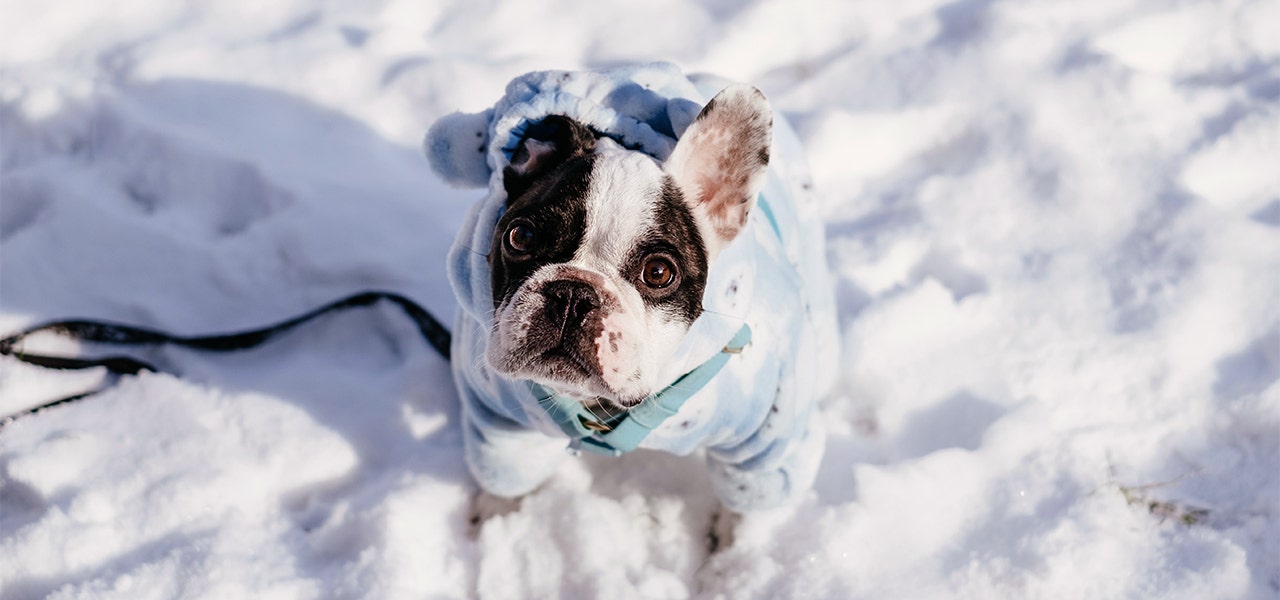It’s hibernation season. The bears and the bees have holed away for the winter, dreaming away the winter days as the countdown to spring slowly moves along … sounds nice, right?
The bad news: humans can’t hibernate (as much as we may want to). However, many of us are drawn to something similar during the winter months: keeping indoors to avoid the cold weather outside, relishing in some much-needed alone time, indulging in hearty comfort foods. (The desire to hibernate looks a lot like self-care, in many ways!)
Another hibernation-like urge you might notice during the winter months is the desire to sleep … and sleep … and sleep. And surprisingly, it’s not because your body needs mores sleep during the winter, but rather that the quality of sleep you are getting may be suffering. Unlike bears, cozy season won't force you into a months-long snooze, but it can affect your sleep in ways you might not expect.
Do you feel like crawling into bed to sleep until spring … yet find yourself tossing and turning all night? Or waking up tired? What gives? While human hibernation isn’t a thing, winter insomnia very much is – read on to learn more.
What Is Winter Insomnia?


To understand what causes winter insomnia, you should start with knowing the basics of the human sleep/wake cycle. Our sleep cycles are governed by sunlight, as our ancestors would sleep and wake with the sun. This 24-hour internal clock that resets with the sun’s light/dark cycle is called the circadian rhythm, and it’s responsible for processes such as:
- Sleep/wake cycles
- Hormonal activity
- Body temperature rhythm
- Eating and digesting
When the sun goes down, the brain sends signals to the body to start winding down, too. One of these signals is melatonin production – that’s the hormone that makes you “feel sleepy.”
In the winter, there are less hours of daylight, and the daylight we receive isn’t as bright as it is during the summer. This confuses the body’s internal clock, disrupting melatonin production and making it harder to fall asleep and to wake.
4 Reasons Your Sleep May Suffer in Winter
As if the biological factors weren’t enough, winter behavior can also wreak havoc on our sleep. Here are a few possible culprits.
1. Eating Heavier Meals
Tis the season for indulgent, heavy, oh-so-delicious meals. It starts with the holidays and their feasts and cakes and drinking and merriment, and as the weather turns colder and we indulge in comfort foods to get us through the day, the ball just keeps rolling.
Sleep and diet work hand in hand. Not getting enough sleep disrupts the production of hormones that control appetite and hunger and can cause cravings and overeating. On the other hand, eating a diet that is low in fiber and high in saturated fat can decrease the amount of quality, restorative sleep you get; consuming too much sugar can cause frequent sleep disruptions; and we all know the effects that substances like caffeine and alcohol can have on bedtime.
To put it simply, when you eat better, you sleep better, and vice versa. Unfortunately, most of us just aren’t eating well this time of year.
2. Getting Less Exercise


Much like bears in a den, winter weather tends to keep us inside and out of the cold. Unfortunately, for many people this deters us from properly exercising our bodies.
You’re probably more likely to let your dog do their business in the backyard than to take them on a long, neighborhood walk during the winter. Or perhaps you ditch your usual bike ride to work and carpool with a colleague, instead. Maybe you just can’t drag yourself off the couch and out to the car to head to the gym when it’s cold outside. Nobody likes being cold, and sometimes the desire to stay warm wins out against motivation to work out.
Unfortunately, physical activity is one of the keys to consistent, quality sleep. When you use your body, it needs that rest and recovery that sleep provides – and even if other factors are at play, it will do anything it can to get that sleep. When you miss out on physical exercise, you might find it harder to fall asleep and stay asleep.
3. Fighting Colds and Flus
Winter isn’t just cold season, it’s common cold season – and the flu, too! This one’s a double whammy: 1. The cold weather weakens our immune system, making us more susceptible to illness, and 2. Viruses like the rhinovirus (AKA, the main culprit for the common cold) thrive in colder temps, making them easier to spread and harder to kick.
Your quality of sleep reflects your physical and mental health – so when your physical health suffers, your sleep will likely suffer as well. You might feel fatigued, but not necessarily sleepy; the mental effects of illness may cause sleep-disrupting anxiety; and uncomfortable chills, difficulty breathing, and waking up to cough or blow your nose can frequently disrupt any quality sleep you may be trying to get.
4. Indoor Environmental Factors
Staying inside results in multiple environmental factors that can lead to poor sleep. As we mentioned earlier, staying indoors leads to less daylight exposure, disrupting your circadian rhythm. Additionally, indoor air quality suffers in the winter – leading to dry noses and throats, open-mouth breathing and snoring … big sleep disruptor alert!
Cold outdoor weather means higher indoor temps – it’s cozy season! Unfortunately, higher indoor temps can harm our sleep quality, as our bodies naturally want to sleep cool. But if you’re waking up hot and sweaty, keep in mind that it might not be due to the indoor temperature at all: your mattress may be to blame!
Petroleum-based polyurethane foam like the memory foam that is commonly used in mattresses actually traps heat. If you want to help your body regulate temperature, opt for a naturally breathable organic mattress made from materials such as organic cotton and wool. Same goes for organic bedding!
Is Your Winter Insomnia a Symptom of Seasonal Depression?


Lack of sunlight doesn’t just disrupt melatonin production – it can disrupt your serotonin production too, leading to changes in mood and even triggering depression in some. This condition is called Seasonal Affective Disorder, aptly abbreviated as SAD. If you think that your winter insomnia goes beyond behavioral changes or changes in the weather, you should talk to your doctor.
Tips for Better Sleep This Winter
We all need restorative, quality sleep – our bodies do and our brains do, too! For better sleep during the winter and beyond, you should always:
- Maintain a reasonably regular sleep schedule
- Try to get some physical activity every day
- Eat a well-balanced diet
- Hone your sleep environment (start with quality, comfy bedding!)
- Avoid screen time and blue light before bedtime
You’ve made it this far – spring is just around the corner! If you’re feeling that urge to hibernate, it’s okay to let yourself indulge in some cozy, restful, peaceful alone-time at home and dream of warmer days ahead. (Spring forward and daylight savings affect sleep, too – you can check out our blog for year-round sleep tips, product recommendations and more!)
 BABY
BABY  KIDS
KIDS  ADULT
ADULT  LEARN
LEARN  STORES
STORES 